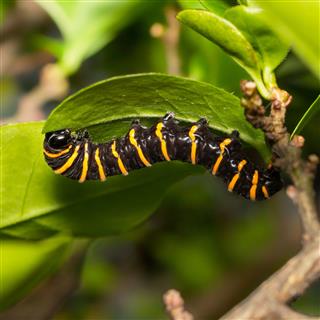
If you have run out of ideas for your school project fair, you’ve come to the right place. Here are some topic ideas for middle school science projects, that’ll take your science project to the next level and help you excel as a student.
Participating in a middle school science fair is a great learning experience. While preparing for a science fair project, you should read all the rules and regulations carefully. It is important that you know what is allowed and what isn’t. You don’t want to include substances that are illegal or hazardous in your project. Many science fairs, nowadays, also rule out the inclusion of animals. Make sure you understand all the details and if there is something that you don’t understand, get it clarified from your teacher before beginning your project.
Middle School Science Project Ideas
There are a great many ideas that you can research and do for science fair projects. Coming up with one that appeals to you, is exciting and original, and which has not already been bagged by someone else, can be a bit of a daunting proposal. Plan early and prepare thoroughly. Devise a hypothesis, type your presentation, and use plenty of pictorial or actual samples to back your case.
How do mosquitoes breed?
What causes tides?
How are airplanes designed?
What factors are taken into account when designing a skyscraper?
What are the different types of roof designs?
How does language evolve?
How do rivers die and what can be done to save them?
How is the speed of sound calculated?
What effect does stress have on your body?
Bison have been reintroduced into the wild in Colorado. What long-term effect, if any, will that have on the natural ecosystem?
Will it be possible to resurrect extinct species using DNA?
How do you isolate and extract DNA?
How does digestion work in cattle? Why does the cow keep chewing cud?
How do you make invisible ink and how effective is it on different kinds of writing surfaces?
Can caffeine be used as an effective pesticide?
How can some dogs sense if someone is going to have an epileptic fit?
How do animals sense impending natural disasters? Consider the example of wild animals rushing away to safety before the Tsunami.
Is there any real difference between white candles and colored candles?
What happens when you burn a candle at both ends?
Why do moths and other insects hover around light sources?
What does a permanent marker contain?
If you mark yourself with a permanent marker, does that mean you are marked for life?
What are the conditions under which mold grows on food?
How does recycling garbage work?
How does vermiculture work?
How many different kinds of mold are there?
What packing materials are better for food preservation?
How can you cut an onion without weeping over it?
How are eggs measured and how accurately?
Are growing roots affected by the soil temperature? In what way?
Do goldfish really have a five-minute memory span?
What are antibubbles and how do you make them?
How strong is an electromagnet?
Does the temperature of a liquid affect its viscosity? In what way?
What happens when a fruit ripens?
Does food lose its nutritional value if it is put in a microwave?
Will a square ice cube melt faster than a hexagonal or octagonal ice cube?
How is it that certain singers can break a wine glass with their high pitch voice?
Why do apples turn brown after they are cut and left standing?
Do plants grow better if you play music to them?
How are chemicals derived from various marine organisms? In what way are these chemicals important in making medicines for human use?
Why does our mind tend to wander when we are concentrating on something?
Are humans the only species with a sense of humor or do other creatures have it too?
Is there a correlation between music and math?
How do monarch butterflies traverse over long distances?
How does an oyster create a pearl? How are pearls artificially made?
What precautions should divers take when they go deep-sea diving?
How does the homing instinct in animals work?
Why is it easier to remember a song you just heard than a poem you just read?
How does the weather affect musical instruments?
Will robots take over our world eventually?
How do plant species evolve?
How many different kinds of rocks are there? How are they formed?
How do volcanoes work?
How do honeybees communicate with one another?
How is life and work organized inside an anthill?
How is hydro power generated?
What are meteor showers?
What explanation is there for the special acoustics at the Whispering Wall of Barossa Valley?
How much is the water content in an orange?
Are insects attracted to the heat or light generated from lamps?
Is catnip more effective than DEET repellant in fighting off cockroaches?
s there any requirement of oxygen for a fire to keep burning?
Among the various cheese varieties, on which type of cheese does mold manage to grow rapidly?
Is the nutritional content of vegetables (canned products), different among different brands?
You must have noticed unpopped popcorn kernels. Does this happen for all brands?
Is the amount of light a factor for food spoilage?
Have you noticed bare feet of men and women? Can you tell all the differences between them?
Does the pulse rate vary among different age groups?
How do whales communicate with one another?
Apart from describing a phenomenon or preparing a model to demonstrate that, middle school students can come up with answers to a question, fix the problem thus, giving them an opportunity to stand out among others. So, all you middle school students out there, here is your chance to shine!












